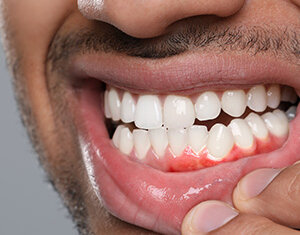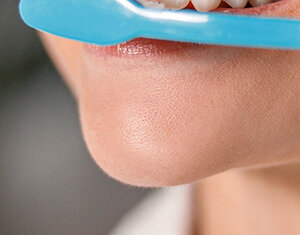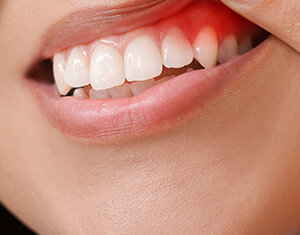Blog
Surprising Reasons Why Your Child May Be Struggling With Bad Breath
Oral Care

Is your child facing the challenge of bad breath, and you've ruled out the usual suspects, like skipping toothbrushing sessions? Bad breath in children isn't just about dental hygiene; it can stem from several surprising sources. From dehydration to dietary choices, the reasons for mouth smell are diverse and often overlooked.
In this article, we will find some unexpected causes behind your child's halitosis and offer practical solutions to tackle them. Read on to discover how you can help your child conquer bad breath and regain confidence.
What Causes Bad Breath in Kids?
One of the most common reasons why people seek dental care for their children is due to bad breath. Poor oral hygiene is often the leading cause of halitosis or bad breath in children. The bad breath reasons can vary widely and may include:
- Poor oral hygiene can cause smelly breath due to bacteria in plaque pockets.
- Prolonged sugar exposure can lead to tooth decay, enamel corrosion, and can also lead to infections.
- Gum disease can cause swelling and deeper oral tissue infections.
- Enlarged tonsils, due to chronic inflammation, can retain excess waste and bacteria.
- Allergies, colds, or sinusitis can cause post-nasal dripping, which transfers malodorous bacteria downstream.
- Breathing via mouth instead of nose for prolonged periods can avoid the nasal's natural filtration mechanisms.
- Dietary influences such as frequently skipping breakfast or consuming pungent snacks can disallow proper digestion gaps.
How to Treat Bad Breath in Children?
Here are some of the home remedies for bad breath:
-
Uphold Oral Hydration
It is important to keep your mouth moist and your body's defences active to prevent bad breath. Drinking clean water frequently and brushing can help remove food particles and minimise the reason for bad smells in the mouth.
-
Strategies Nutrition Choices
Raw celery, apples, and carrots increase saliva production, contain antimicrobial properties, and reduce odour-causing bacteria. Yoghurt with live cultures promotes a healthy mouth, keeping teeth clean and free from pathogens.
-
Emphasise Hygiene Habits Inculcations
Parents' consistent oral care habits greatly influence their children's lifelong habits. Therefore, it is essential to synchronise brushing, flossing, and tongue-cleaning routines within the household. Regular dental check-ups can help identify any unseen dental issues.
What If My Child Has Bad Breath Even After Brushing?
Your child can still have the causes of bad breath even after brushing because brushing alone doesn't clean the spaces between teeth. To combat halitosis, using an herbal toothpaste like Dabur Meswak can be effective.
Dabur Meswak is formulated using pure extracts from the Miswak plant and can fight germs and bacteria, prevent plaque and tartar buildup and tooth decay, and promote healthy gums and teeth. It also leaves a refreshing feeling in your mouth.
If bad breath lasts even after trying these techniques, it's best to consult a dental care expert to identify the underlying issue.
Ayurvedic Home Remedies to Stop Bad Breath
- Frequent hydration moisturising oral linings through clean water swishing, preventing bacterial congregation niches.
- Ingesting raw, crunchy fruits like apples, celery, and carrots, along with walnuts, can stimulate increased saliva production, which helps remove debris from the teeth.
- Spicing up meals with innate freshness boosting mint, cardamom, cinnamon, or yoghurt containing probiotics keeping sulphur liberating germs populations
- Manually removing decaying plaque, brushing meticulously, and flossing between teeth can reach untouched gum crevices.
- Milk consumption soothes buccal lining and minor inflammation while vitamin adequacy strengthens immunity defences, arresting opportunistic pathogen's colonisation risks.
- Gargling with a saltwater solution can help eliminate bacteria and soothe inflamed gums.
Conclusion
Bad breath in children can have surprising causes beyond dental hygiene, such as dehydration, diet, dental issues, sinus infections, and digestive imbalances. Addressing these factors with a complete strategy can ensure fresher breath, better health, and a more confident child.
FAQs
-
How soon after eating should my child brush their teeth to control bad odours?
Waiting 30-60 minutes for meals allows salivary digestion, minimising immediate acid erosion on enamel from brushing. After that, swishing water suffices to clean away food debris temporarily.
-
Can vitamin deficiency or hormonal changes affect a child's breath freshness?
Certainly, transient nutritional deficiencies hampering immunity resistance can exacerbate odour-causing germ propagation risks. Likewise, puberty hormonal shifts stress oral environments requiring accommodations.
-
Can chronic blocked nose or throat infection cause bad breath in kids?
Yes, congestion risks post-nasal germs drip transfer into the mouth, worsening breath despite cleaning. Managing inflammation and antibacterial gargles mitigates risks before infection remedies.
-
Can lingering odour-causing snacks like garlic require avoiding for children?
While moderation generally suffices through maintaining digestion gaps, some children given physiological uniqueness can require bespoke dietary adjustments if elimination trials validate particular eatables worsening daily troubles.
-
When should we seek specialist intervention for addressing a child’s bad breath?
If halitosis concerns seem persistently unresolved after 1-2 weeks continuously, seeking dental evaluations can help isolate sneaky factors or rarely underlying systemic conditions requiring collaborative discovery and therapy customisations.























